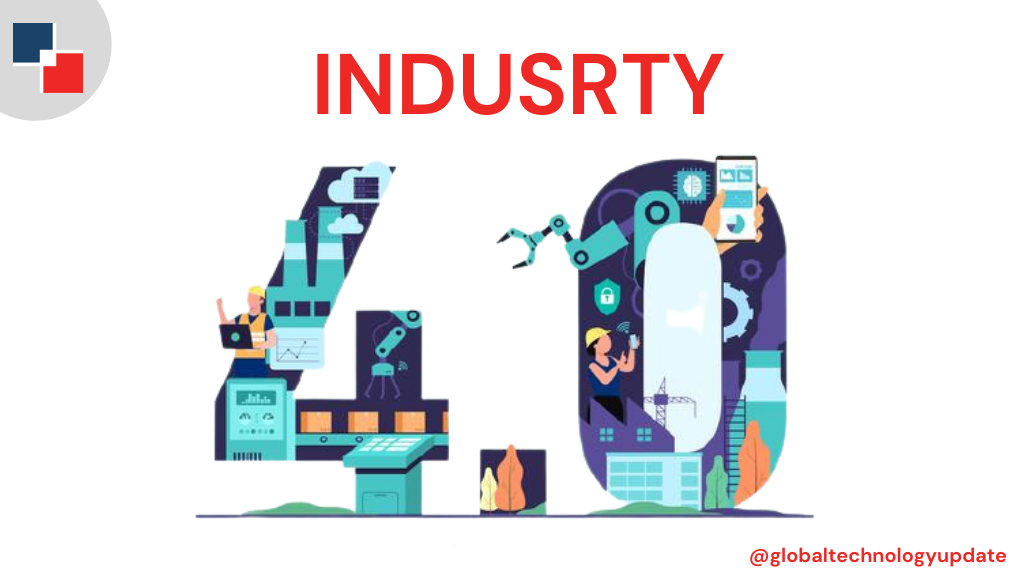Manufacturing has reached the fourth industrial revolution. Because of the utilization of sensors, software, networking, and big data analytics, digitalization is allowing for leaner, more efficient manufacturing as well as the development of flexible new business models. Let’s learn how Industry 4.0 transforming the Manufacturing industry.
The phrase Industry 4.0 refers to the convergence of multiple important technological advancements that are all mature at the same time and are likely to have a significant impact on manufacturing sectors.
When these technologies, which include advanced robotics and artificial intelligence, sophisticated sensors, cloud computing, and the Internet of Things, are combined, the real and virtual worlds are integrated. The development of this technological infrastructure is still in its early phases. But how is it affecting manufacturing?
Technology in Industry 4.0 uses hardware and software to connect previously separate systems, gives information transparency, augments human decision-making, and decentralizes decision-making inside technological systems, reducing the need for human intervention.
As Industry 4.0 matures and we approach the Fifth Industrial Revolution (IR5), manufacturers should expect to perceive data and IR4 tech as a competitive advantage over less technologically advanced enterprises. The optimizations that they are capable of achieving will become—and in most cases have already become—impossible to recreate with human knowledge, intuition, and willpower.
The fundamental reason for this is that people cannot collect and analyze data accurately or quickly enough to generate the types of complex analytics and real-time insights that IIoT, machine learning, and other Industry 4.0 technologies can.
Manufacturing with Industry 4.0
Manufacturers who employ Industry 4.0 technology can reduce downtime through predictive and prescriptive maintenance utilizing sensors and other IoT devices, improve machine usage, swiftly pivot and innovate in reaction to market fluctuations, identify and mitigate bottlenecks, increase shop floor visibility, optimize warehouse space, and other sources of data.
1. Improved Transparency and Flexibility
Companies can be vertically and horizontally integrated. Inventory management systems that are cutting-edge, for example, connect retailers, distribution centers, transporters, manufacturers, and suppliers.
Each gets data on the other’s supply levels in a transparent manner, automatically arranges and fulfills orders, and initiates maintenance and upgrades. This smoothes out the gluts and shortages of a traditional supply chain and allows it to adapt to unexpected disruptions and readily test new products and services in specific geographic regions.
2. Self-Monitoring Products and Services
When the data generated by goods and services are collected and analyzed, it tells how well they perform and are used. For example, equipment in a shipping port or on a construction site can now detect and prevent potential mechanical faults.
This technology’s next generation will be able to compare the efficiency of various machines and make recommendations for more efficient deployment. Industrial products that track their actions can disclose a lot about the people who use them, such as how they operate, where they get stuck, and how they deal with problems.
Engineers can use 4.0 technologies like artificial intelligence and machine learning to develop a fully autonomous self-monitoring system. These technologies can provide real-time data, which was previously unavailable due to the need for engineers to manually collect all data.
3. Increasing Staff Safety and Operational Stability
Remote work and collaboration capabilities, which minimize the need for non-critical personnel to leave their homes, are becoming necessary. Beyond simple contact- and location-tracking mobile apps and videoconferencing apps, more advanced technologies like machine vision algorithms and wearable technology are also helpful in keeping a safe distance once manufacturing processes resume.
4. More Attentive to Consumer Requirements
With a more responsive value chain, industrial companies may be able to reach out to end customers more directly. Aircraft engines and software, among other things, are increasingly being provided as services, often on a subscription basis.
At the same time, firms may now produce one-off batches of products for the same price as mass-produced items. This enables them to entirely customize products to a customer’s specifications. When compared to mass-produced products, these more individualized products and customized solutions may provide significantly higher profit margins.
5. Cost Optimization
Long-term cost savings are the most significant benefit of being around 4.0. As the manufacturing line becomes more intelligent and learning-oriented, less human involvement and training are necessary.
All of these characteristics are attracting the attention of industrialists and driving them to optimize their company model by employing 4.0 apps. Machines can communicate with one another, transfer data from one peer to another, and convey an emergency warning.
6. Improve Performance Management and Productivity
Data is collected manually in most businesses, especially SMEs, using pen and paper or simple spreadsheets. Errors and mistakes are common in the process, which is compounded by the stress of a crisis.
Manufacturers can automate data collecting by installing sensors or directly tapping into programmable logic controllers of machines to collect data and show it on real-time dashboards using digital solutions.
At one industrial manufacturing company, robots are already carrying raw materials and semi-finished goods to different production lines, allowing the production team to manage with a smaller workforce while avoiding close connection between production and material-handling personnel.
7. Quality Improved
Digital technologies can go beyond simply improving day-to-day operations in quality management. In addition, as the number of SKUs for finished items and raw materials increases, end-to-end traceability becomes more important for quality. Industry 4.0 technologies can help with everything from simple barcode scanning to RFID monitoring and blockchain.
The Future of Manufacturing
Industry 4.0 is releasing a slew of new technologies that are propelling the manufacturing industry toward greater efficiency. Whether you’re in charge of maintenance, quality, production, or the entire plant, the basis of these solutions is gathering data from operations and using it to drive better, faster decision-making across the organization. Starting with the fundamentals and focusing on the operation’s heart can help lay the groundwork for a smarter, more integrated lean operation.
Although AI has made its way into everyone’s lives, whether through smartphones or smart assistants, the industrial industry has only recently begun to take AI integration and other Industry 4.0 technologies seriously.
Furthermore, while the year 2021 demonstrated the importance of digitization in the manufacturing business, the years ahead will disclose who is prepared for the factory of the future and who is not. As a result, businesses that embrace not just the potential but also the problems of an increasingly digital and virtual world will be successful.




